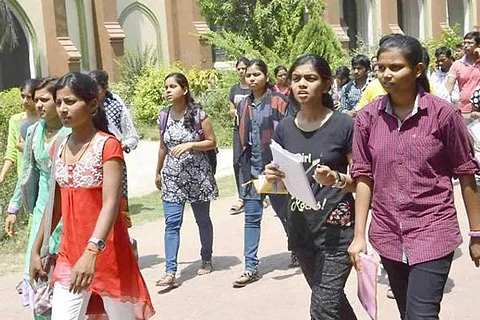

Students in India's colleges will soon have multiple entry and exit points — which means that the rigid even semester system is finally on its way out. With the implementation of the National Education Policy, which has now been approved by the union cabinet, students are free to take a gap year in between and save their credits in the Digilocker.
Here's how it works. The students will be awarded a certificate in the first year of graduation, a diploma in the second year and a degree in the third or fourth year, depending on the course. "There will also be a multiple entry system through the academic bank of credit," said the Higher Education Secretary Amit Khare at a web conference. "The credits that the students obtain in their first and second year will be stored using the Digilocker system. So, in the third year, if they want to take a break and continue their course within a fixed period, they can utilise these credits for further education," he added. Khare added that courses will be multidisciplinary and that students can opt to study minor subjects that aren't really related to their majors.
Another important decision here is the discontinuation of MPhil to do PhD. Instead, a four-year degree course will be introduced for those students who will want to pursue research. "Students who are interested in research can go for an integrated five-year master's. This will be a four-year UG degree, instead of a regular three-year one. After this, they can go for a one-year master's and then directly join PhD," added Khare.
Union HRD Minister Ramesh Pokhriyal and Union Information and Broadcasting Minister Prakash Javadekar, along with Anita Karwal Secretary in the Department of Education and Literacy, MHRD and Khare jointly addressed the media around 4 pm on Wednesday. The committee — which suggested changes in the education system under the NEP — was headed by former ISRO chief K Kasturirangan. "The cabinet under Prime Minister Narendra Modi has given approval to new education policy for the 21st century. It is important, as for 34 years there were no changes in the education policy," said Union Minister Prakash Javadekar during the announcement.
